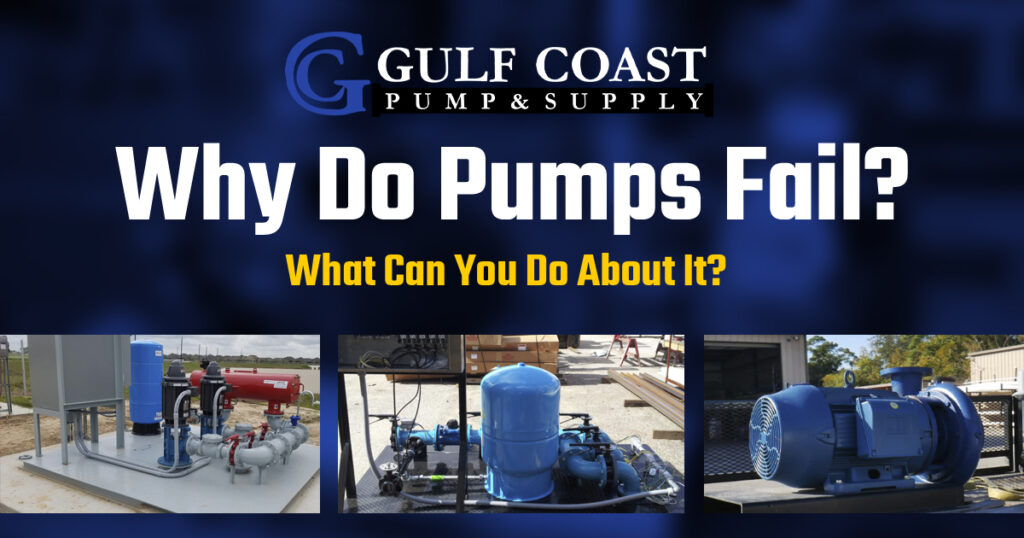If you’ve ever dealt with a pump going down in the middle of a job, you know the headache it brings. Whether it’s a submersible pump, booster pump, or part of a groundwater system, pump failure always seems to happen when you need it most. So what’s really going on when pumps stop working? And more importantly—how can you avoid it happening again?
Let’s break it down in plain terms.
The Real Reasons Pumps Fail
Pump failure isn’t always a mystery. In fact, most issues come from a few usual suspects: wear and tear, improper application, neglect, and environmental conditions.
One of the biggest culprits is worn-out components—seals, bearings, impellers. These parts take a beating over time. If they’re not inspected or replaced regularly, they’ll eventually give out.
Then there’s cavitation. That’s what happens when air bubbles form due to low pressure in the pump. When those bubbles collapse, they create shockwaves that can wreck internal components. It’s loud, damaging, and entirely preventable.
Corrosion is another common issue, especially in systems dealing with salty water, acidic fluids, or harsh chemicals. Over time, these elements eat away at the metal, eventually compromising the structure of the pump.
Overheating is also a problem—usually tied to friction, high fluid temps, or lack of lubrication. Once the internal temperature spikes, seals can melt, bearings seize, and motors can burn out.
Other Common Causes
Let’s not overlook the other root causes that aren’t always mechanical:
- Running the wrong pump for the application
- Allowing debris to clog impellers or intake lines
- Inconsistent voltage or power loss
- Improperly sized pumps causing stress on the motor
Diagnosing The Problem
If your pump has stopped working, the first thing to do is check the basics:
- Is there power going to the pump?
- Are all the connections secure and moisture-free?
- Is the fluid level high enough for the pump to operate?
Sometimes it’s as simple as a tripped breaker. Other times, it’s a worn motor or blocked line. If you’re not sure, give us a call—we’ll help you figure it out.
Submersible Pump Issues
Submersible pumps are great for tight spaces and wet environments, but they’re not immune to failure. Corrosion is the number one issue, especially when dealing with high mineral content in the water. If you notice your pump struggling or see sediment buildup around the impeller, it’s time for an inspection.
These pumps can also fail due to overheating or voltage issues. Because they’re sealed and submerged, they’re harder to monitor, so it’s even more important to stay on top of scheduled maintenance.
The Impact Of Debris And Chemicals
Foreign matter is another headache for pump owners. Sand, grit, and debris can easily clog a pump or damage internal parts. This is why filtration and pre-screens are crucial.
Chemical exposure can also shorten a pump’s life. Corrosive fluids like chlorinated water or acids can eat away at even stainless steel over time. Make sure your pump’s materials are compatible with the fluid it’s handling. If you’re unsure, that’s exactly the kind of thing we can help you with.
Stress And Physical Damage
Even if everything is clean and dry, a pump can still be damaged by stress and vibration. Long-term shaking or misalignment puts a load on bearings and impellers. External impacts—like hitting a pipe or dropping equipment—can also knock things out of place.
High heat and freezing temps can be just as damaging. Pumps exposed to temperature extremes need to be properly insulated or vented.
Maintenance: The Simple Fix That Saves You Money
One of the most overlooked factors in pump life is basic maintenance. Too many systems go unchecked until something breaks. That’s usually when the job site is underwater, and everyone’s scrambling.
Here are the basics:
- Inspect and clean pumps regularly
- Replace seals and bearings as needed
- Keep spare parts on hand
- Use the right pump for the job
- Make sure your team knows how to operate and monitor your system
Working With The Right Supplier Makes A Difference
At Gulf Coast Pump & Supply, we’ve seen it all. We’ve been helping contractors, municipalities, and industrial operations for over 60 years, and many of our sales consultants have been with us for two decades or more. We know what causes pump problems—and we know how to solve them before they happen.
Our staff can walk you through every step of your system—from selecting the right submersible or grinder pump to customizing a control panel with the features you actually need. We only carry quality brands, and we stock a wide range of accessories, so you don’t have to shop around.
Need a custom filtration screen? We build those in-house. Need a pump station for dewatering or lake irrigation? We do that too. Our goal is to help you run a system that lasts—not just sell you parts.
When A Pump Fails, You Know Who To Call
Eventually, every pump reaches the end of its life. When that happens, you don’t want guesswork—you want fast answers and reliable replacements.
That’s exactly what you get from Gulf Coast Pump & Supply.
We’re fast. We’re experienced. And we’re ready to get you back up and running with the right part at the right time. One call is all it takes.

